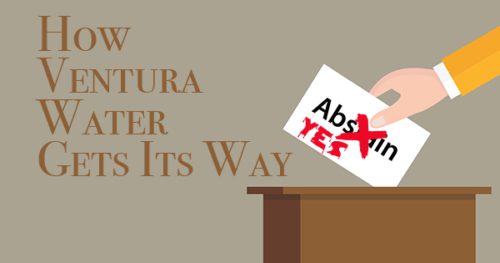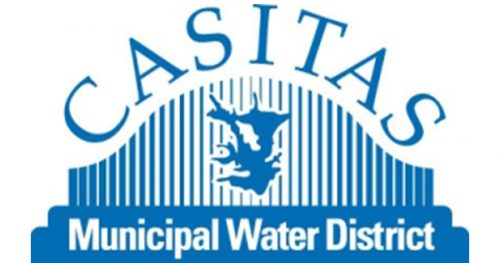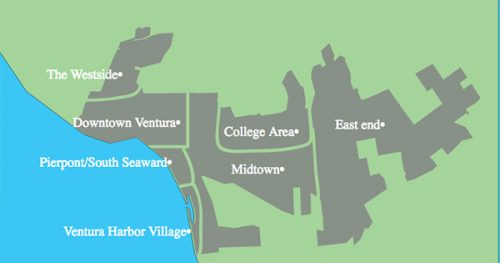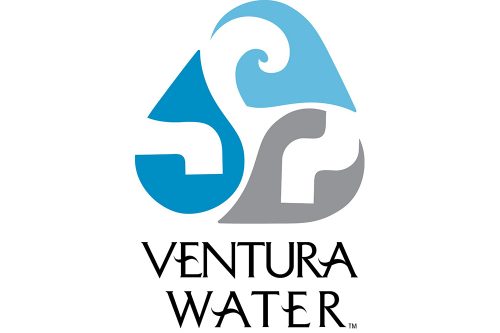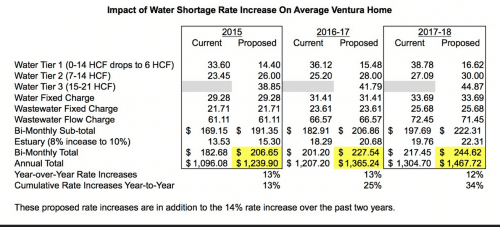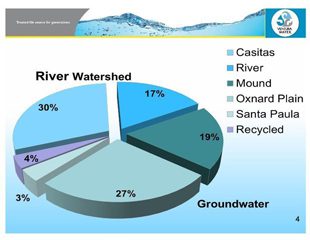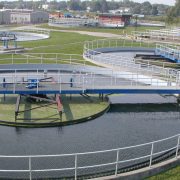Are You Really Content To Drink Sewage When You Don’t Have To?

“If you can’t convince ’em, confuse ’em. It’s an old political trick.”
—Harry S. Truman
Before discussing water issues in Ventura, we must first dispel a myth. The City of Ventura has plenty of water. We have almost ten times the water we need annually in reserves. So, the City of Ventura’s insistence to conserve drinking water because we don’t have enough is untrue. There are many good reasons to save, but not having enough drinking water is not one of them.
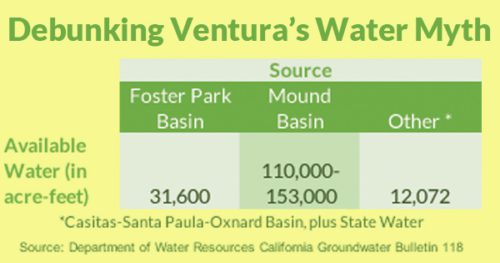
Between Foster and Mound Basins alone, there are 141,600 to 184,600 AF of water. Assuming there is zero replenishing of groundwater—and not counting on our other water resources from Casitas, Santa Paula, Oxnard Basin or State Water (a combined amount of 12,072 AF more per year)—Ventura has almost ten times the water it needs annually in reserves.
Historically, Ventura has used an average of 21,000 acre-feet of drinkable water per year. This figure has been steady over the past 30 years. With conservation and reduced consumption, Venturan’s have managed to reduce our water usage to 15,000 acre-feet per year. So, regardless of doom and gloom declarations issued by the State of California, or what Ventura Water tells us, Ventura has enough water. (See Notes On Water Availability below for additional information).
THE REAL ISSUE
Ventura’s real problem is a legal Consent Decree, agreed to by the Ventura City Council in 2012. That Consent Decree mandates that Ventura must stop dumping treated sewage* into the Santa Clara River. The amount of sewage to be diverted will be as high as 90% (about 4,685 AF per year) according to one panel of experts, leaving the remaining 10% to be treated and left in the estuary for fish and wildlife.
*Ventura Water calls sewage wastewater, effluent, or tertiary treated flows among other names.

SO HOW DID WE MAKE THIS ABOUT DRINKING WATER?
To comply with the Consent Decree, Ventura Water conceived that Ventura would inject this treated sewage directly into our water system, thus began VenturaWaterPure. For six years City leaders led citizens to believe Ventura has no choice but to move full speed ahead and accept the use of sewage using Direct Potable Reuse (DPR), but a primary reason for DPR was “because we need the water.” Few citizens knew about the underlying problem to comply with the 2012 Consent Decree. With that false justification of needing more drinkable water, the City committed to spending over $500,000,000 for DPR to abide by the Consent Decree.
DPR IS NOT APPROVED OR SAFE
 Costing over $500,000,000 is not the only issue. The more significant issue is that the City Council assumed DPR water was safe to drink. It is not safe. An expert panel, appointed by the State Water Resources Control Board, determined that DPR is feasible. Yet, using such water would be harmful to public health and safety with the current technology. They reported that except for two remote areas on the earth (Namibia and a city in northern Texas), which have no other drinking water options; such water is not suitable for human consumption.
Costing over $500,000,000 is not the only issue. The more significant issue is that the City Council assumed DPR water was safe to drink. It is not safe. An expert panel, appointed by the State Water Resources Control Board, determined that DPR is feasible. Yet, using such water would be harmful to public health and safety with the current technology. They reported that except for two remote areas on the earth (Namibia and a city in northern Texas), which have no other drinking water options; such water is not suitable for human consumption.
There are no regulations in place anywhere in the United States, or the State of California, permitting or governing that use. Nobody knows if, or even when, the state will publish such regulations. It is highly improbable that this will occur by the December 31, 2025 Consent Decree deadline.
SO WHERE IS STATE WATER IN THIS PLAN?
Ventura Water has ignored the majority of citizens desire to tie into the State Water Project because it knows the State Water Project does nothing toward complying with the Consent Decree. In June 2018, the City Council directed Ventura Water to make importing State Water the top priority. While that pipeline project is in motion, Ventura Water plans to work on DPR while they work on the State Water pipeline.
WHAT CAN THE CITY DO TO CHANGE THE COMPLIANCE DATE OF THE CONSENT DECREE?
While Ventura must abide by the Consent Decree, the compliance deadline of December 31, 2025, may be unattainable. At this point, the Consent Decree remains the driving force behind all Ventura’s water decisions. With the land acquisition, planning, construction, EIRs and financing required, the 2025 deadline is not feasible.
 However, the Consent Decree says the court can extend the time limit in the event of construction constraints, financing problems, or an emergency. It requires Ventura to petition the court requesting an extension, or an agreement with the plaintiff and their lawyers. That has not happened.
However, the Consent Decree says the court can extend the time limit in the event of construction constraints, financing problems, or an emergency. It requires Ventura to petition the court requesting an extension, or an agreement with the plaintiff and their lawyers. That has not happened.
The most devastating natural disaster in Ventura’s history occurred in December 2017. The Thomas Fire wiped out over 500 homes and destroyed water systems throughout the city. The Fire further delayed Ventura Water in the planning, design, and construction of projects to meet the requirements of the Consent Decree. It seems clear that Ventura should petition to the US District Court for a 5-year extension. There’s only one thing standing in the way of requesting that extension — our lawyers.
WHY THE DELAY IN SEEKING TO EXTEND THE DEADLINE?
 On February 4, 2019, Council Member Jim Friedman asked our City Attorney, Gregory Diaz about extending the deadline.
On February 4, 2019, Council Member Jim Friedman asked our City Attorney, Gregory Diaz about extending the deadline.
Mr. Diaz’s advice is that we should not at this time. He wants to keep this option “in his back pocket.”
- He said petitioning the Federal Court would be laborious for the lawyers with no guarantees.
- He wants to maintain good relations with various Environmental Groups.
- He was concerned an extension would cause the regulatory agencies to divert their attention away from Ventura.
- We need water.
- The State Water Resource Control Board and State Regulators may require a different timeline for our current temporary sewage permit than the Federal court if we petition to extend the deadline.
The Water Commission asked the outside attorney representing the City of Ventura about an extension. She answered that Environmental Groups are very cooperative and would likely be favorable to an extension because of the positive relationship.
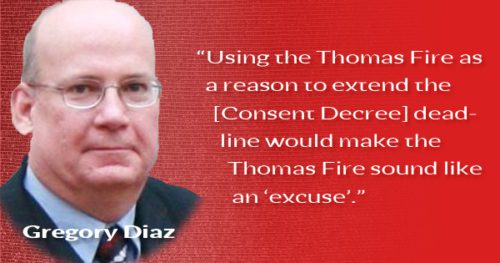
Mr. Diaz says that using the Thomas Fire sounds like an “excuse.” He’s concerned it might give the impression Ventura is looking for a reason to not act. If the most significant human disaster in Ventura’s history is not a strong reason, then nothing is.
EDITORS COMMENTS
Our City Attorney is taking a huge risk with our $500 million. It is clear that he doesn’t intend to pursue an extension with his “keeping it in his back pocket” explanation. Mr. Diaz continues with the myth that water is a problem for Ventura and that treated sewage is the solution Hopefully the City Council will remember that we must “keep our experts on tap and not on top.”
If he waits 4-5 years from now, the Federal Court may ask, “Where were you 4-5 years ago?” If he plays his “back pocket” card in the 11th hour and the court denies it, what then? What seems clear, the further away from the Thomas Fire disaster, the less persuasive the argument for an extension. In the meantime, we spend millions that we may not have needed to pay in the next six years.
Would it be more prudent to send a letter proposing the extension? The worst the Plaintiff or the Court can do is say, “No.” If that is the case, then Mr. Diaz’s good faith argument disappears. Then, the Court’s ruling becomes ‘exhibit A’ in support of a motion in the Federal Court. The city could then use the argument, “What’s a poor mother to do? We asked. We thought they were nice and cooperative folks, but they proved to be something else.”
NOTES ON WATER AVAILABILITY
The California Groundwater Bulletin 118, published by the Department of Water Resources, reports that the Ventura River- Foster Park Basin has reserves of 31,600 acre-feet (AF) of water. It recharges 3,500 AF of water each year by underflow. In 2018, Ventura Water Department only pumped 2,384 AF from Foster Park.
The California Groundwater Bulletin 118 also reports that the Mound Water Basin, which is on the east side of the city, has 153,000 AF of storage capacity. During dry periods, Mound Basin is likely 72% full, for a total of 110,000 AF.
MAKE THE CITY COUNCIL INSIST ON ACCURATE INFORMATION FROM VENTURA WATER
Below you’ll find the photos of our current City Council. Click on any Councilmember’s photo and you’ll open your email program ready to write directly to that Councilmember.
 |
||
 |
||
 |
For more information like this, subscribe to our newsletter, Res Publica. Click here to enter your name and email address.









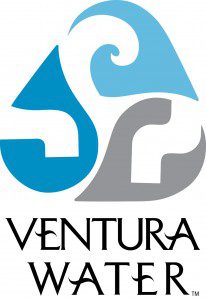
 Ventura Water forces the City Council to get their information from the General Manager. Thus bypassing the entire reason the city established the Water Commission.
Ventura Water forces the City Council to get their information from the General Manager. Thus bypassing the entire reason the city established the Water Commission. You may not have heard about the incident. It’s not because Ventura Water didn’t announce it. They did. Ventura Water fulfilled the letter of the law, but it may have missed the intent behind it. Meeting the legal requirement seems to be the minimum standard. Yet setting the bar at the lowest level may place everyone’s health at risk in the future.
You may not have heard about the incident. It’s not because Ventura Water didn’t announce it. They did. Ventura Water fulfilled the letter of the law, but it may have missed the intent behind it. Meeting the legal requirement seems to be the minimum standard. Yet setting the bar at the lowest level may place everyone’s health at risk in the future. In July, Ventura Water withheld information from the Water Commission. A panel of experts examined
In July, Ventura Water withheld information from the Water Commission. A panel of experts examined 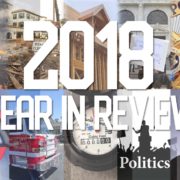


 The City Council waffles on second-story height restrictions for
The City Council waffles on second-story height restrictions for 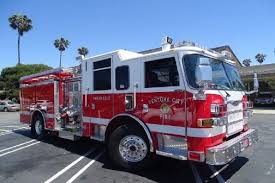 The City Council instructs Ventura Water to focus on connecting to State Water
The City Council instructs Ventura Water to focus on connecting to State Water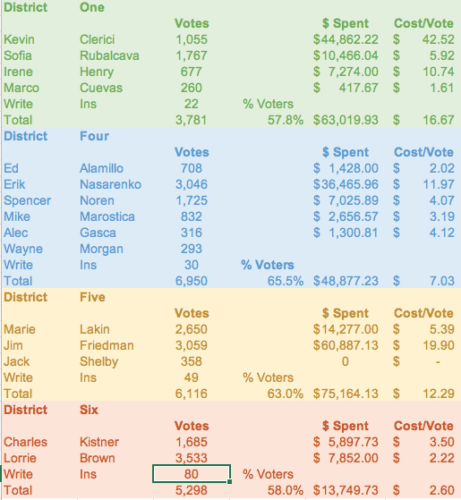




 “I have never understood why it is ‘greed’ to want to keep the money you’ve earned, but not greed to want to take somebody else’s money.”
“I have never understood why it is ‘greed’ to want to keep the money you’ve earned, but not greed to want to take somebody else’s money.” 
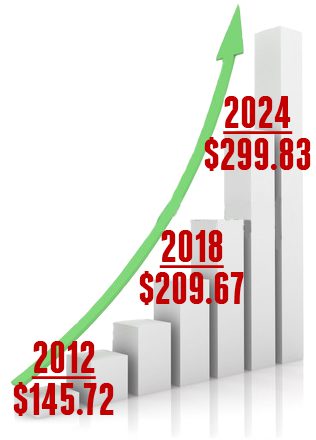
 In March 2012, the Ventura City Council signed a Consent Decree that requires Ventura Water to stop putting 100% of its treated wastewater into the Santa Clara River estuary by January 2025. The decree stems from a Federal complaint filed by Wishtoya Foundation. Former City Manager, Rick Cole and Ventura Water General Manager, Shana Epstein, signed the consent decree on behalf of the city. The city no longer employs either of them.
In March 2012, the Ventura City Council signed a Consent Decree that requires Ventura Water to stop putting 100% of its treated wastewater into the Santa Clara River estuary by January 2025. The decree stems from a Federal complaint filed by Wishtoya Foundation. Former City Manager, Rick Cole and Ventura Water General Manager, Shana Epstein, signed the consent decree on behalf of the city. The city no longer employs either of them.